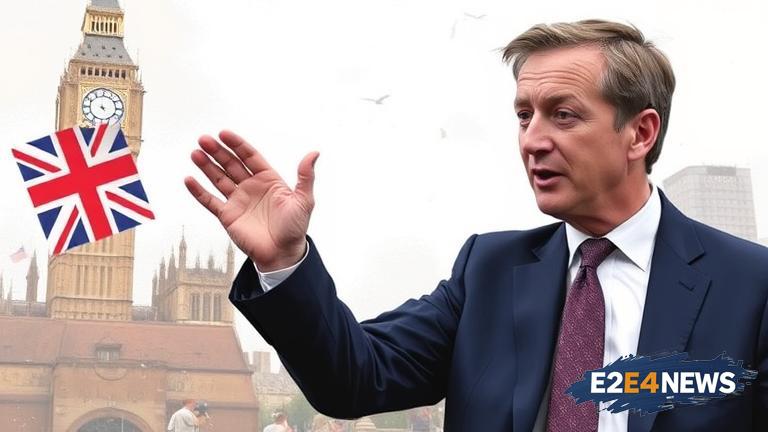Nigel Farage, the leader of the Brexit Party, has unveiled plans to deport 600,000 people from the UK, citing concerns over national security and immigration. The proposal has been met with widespread criticism and outrage from politicians, activists, and members of the public. Many have accused Farage of promoting a divisive and discriminatory agenda, while others have raised concerns about the practicality and legality of such a plan. The UK’s immigration system has long been a topic of debate, with many arguing that it is in need of reform. However, Farage’s proposal has been criticized for being overly simplistic and failing to take into account the complexities of the issue. The plan has also been condemned by human rights groups, who argue that it would lead to the unfair treatment of vulnerable individuals and families. Furthermore, there are concerns that the proposal would damage the UK’s reputation on the international stage and undermine its commitment to human rights and the rule of law. The Brexit Party has argued that the plan is necessary to protect national security and prevent the exploitation of the UK’s immigration system. However, critics argue that this is a misleading narrative and that the real motivation behind the plan is to scapegoat immigrants and stir up anti-immigrant sentiment. The proposal has also been criticized for being based on flawed assumptions and a lack of evidence. For example, there is no clear definition of who would be targeted for deportation, or what criteria would be used to determine who is eligible for removal. Additionally, there are concerns about the impact that the plan would have on the UK’s economy, with many businesses and industries relying on immigrant labor to function. The plan has also been condemned by trade unions, who argue that it would lead to the exploitation of workers and undermine their rights. In response to the criticism, the Brexit Party has argued that the plan is necessary to restore trust in the UK’s immigration system and to ensure that the country is able to control its borders. However, many remain skeptical of the party’s motives and argue that the plan is nothing more than a cynical attempt to whip up anti-immigrant sentiment and gain political advantage. As the debate over the proposal continues, it remains to be seen whether it will gain traction or be rejected by the UK’s political establishment. One thing is certain, however: the plan has sparked a necessary conversation about the UK’s immigration system and the need for reform. The UK’s immigration system is complex and multifaceted, and any attempts to reform it must be based on evidence and a commitment to fairness and justice. Ultimately, the proposal serves as a reminder of the need for a nuanced and informed debate about immigration, one that takes into account the complexities of the issue and the need to protect the rights and dignity of all individuals. The plan has also raised questions about the role of politics in shaping public opinion and the need for politicians to be honest and transparent in their dealings with the public. As the UK continues to navigate the complexities of Brexit and its aftermath, it is clear that the issue of immigration will remain a major point of contention. The proposal has also sparked a wider debate about the nature of British identity and the values that the UK seeks to uphold. Many have argued that the plan is incompatible with the UK’s tradition of tolerance and openness, and that it would undermine the country’s reputation as a beacon of hope and freedom. Others have argued that the plan is necessary to protect the UK’s cultural heritage and to ensure that the country is able to maintain its unique identity. As the debate continues, it is clear that the issue of immigration will remain a major point of contention in UK politics. The proposal has also raised questions about the impact of social media on public opinion and the need for greater transparency and accountability in political discourse. Many have argued that social media has played a significant role in shaping public opinion on the issue, and that it has been used to spread misinformation and propaganda. Others have argued that social media has provided a platform for marginalized voices to be heard and for alternative perspectives to be shared. As the UK continues to navigate the complexities of the digital age, it is clear that the issue of immigration will remain a major point of contention. The proposal has also sparked a wider debate about the role of the media in shaping public opinion and the need for greater diversity and representation in the media. Many have argued that the media has played a significant role in shaping public opinion on the issue, and that it has been used to spread misinformation and propaganda. Others have argued that the media has provided a platform for marginalized voices to be heard and for alternative perspectives to be shared. As the UK continues to navigate the complexities of the digital age, it is clear that the issue of immigration will remain a major point of contention.





